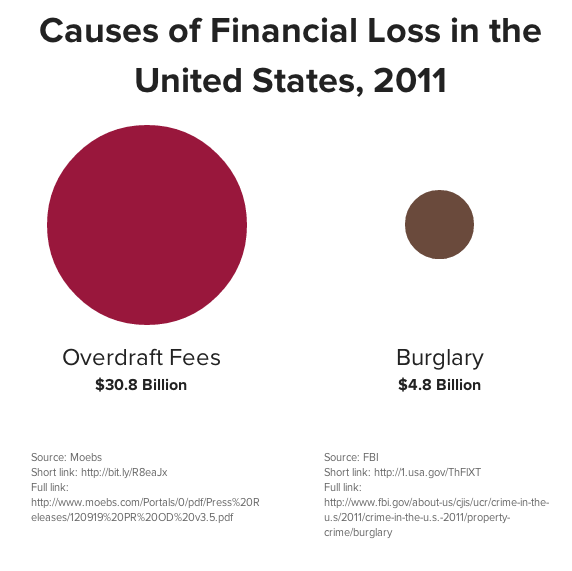January 26, 2024 — I went to a plastination exhibit for the first time last week. I got so much out of the visit and highly recommend checking one out if you haven't. I salute Gunther von Hagens, who pioneered the technique. You probably learn more anatomy walking around a plastination exhibit for 2 hours then you would learn in 200 hours reading anatomy books. There are a number of new insights I got from my visit, that I will probably write about in future posts, but one insight I hadn't thought about in years is how much humans and animals look alike once you open us up! And then of course I was confronted again with that lifelong and uncomfortable question that I usually like to avoid: humans and animals are awfully similar, is it morally wrong to eat animals? I thought now was as good a time as any to blog about it, thus forcing myself to think about it.
Continue reading...January 1, 2024 — Happy New Year!
First, a disclaimer. I think a lot of my posts are my attempts to reflect on experiences and write tight advice for my future self. This one is less of that and more just unsophisticated musings on an intriguing thought that crossed my mind. I am taking advantage of it being New Year's day to yet again try and force myself to publish more.
Continue reading...June 16, 2023 — Here is an idea for a simple infrastructure to power all government forms, all over the world. This system would work now, would have worked thousands of years ago, and could work thousands of years in the future.
Continue reading...June 9, 2023 — When I was a kid we would drive up to New Hampshire and all the cars had license plates that said "Live Free or Die". As a kid this was scary. As an adult this is beautiful. In four words it communicates a vision for humanity that can last forever.

The tech industry right now is in a mad dash for AGI. It seems the motto is AGI or Die. I guess this is the end vision of many leaders in tech.
Continue reading...April 26, 2021 — I invented a new word: Logeracy[1]. I define it roughly as the ability to think in logarithms. It mirrors the word literacy.
Someone literate is fluent with reading and writing. Someone logerate is fluent with orders of magnitudes and the ubiquitous mathematical functions that dominate our universe.
Someone literate can take an idea and break it down into the correct symbols and words, someone logerate can take an idea and break it down into the correct classes and orders of magnitude.
Someone literate is fluent with terms like verb and noun and adjective. Someone logerate is fluent with terms like exponent and power law and base and factorial and black swan.
Continue reading...March 30, 2021 — The CDC needs to move to Git. The CDC needs to move pretty much everything to Git. And they should do it with urgency. They should make it a priority to never again publish anything without a link to a Git repo. Not just papers, but also datasets and press releases. It doesn't matter under what account or on what service the repos are republished to; what matters is that every CDC publication needs a link to a backing Git repo.
Continue reading...March 2, 2020 — A paradigm change is coming to medical records. In this post I do some back-of-the-envelope math to explore the changes ahead, both qualitative and quantitative. I also attempt to answer the question no one is asking: in the future will someone's medical record stretch to the moon?
Continue reading...March 2, 2020 — I expect the future of healthcare will be powered by consumer devices. Devices you wear. Devices you keep in your home. In the kitchen. In the bathroom. In the medicine cabinet.
Continue reading...How Old Are These Keys? Five Eras of Human Progress

My keyboard, if you removed the symbols from the typewriter and computer eras. Try it yourself.
February 25, 2020 — One of the questions I often come back to is this: how much of our collective wealth is inherited by our generation versus created by our generation?
I realized that the keys on the keyboard in front of me might make a good dataset to attack that problem. So I built a small interactive experiment to explore the history of the keys on my keyboard.
Continue reading...January 23, 2020 — People make biased claims all the time. A decent response used to be "citation needed". But we should demand more. Anytime someone makes a claim that seems biased, call them out with: Dataset needed.
Whether it's an academic paper, news article, blog post, tweet, comment or ad, linking to analyses is not enough. If someone stops at that, demand a link to a clean dataset supporting the author's position. If they can't deliver, they should retract.
Continue reading...The Attempt to Capture Truth
August 19, 2019 — Back in the 2000's Nassim Taleb's books set me on a new path in search of truth. One truth I became convinced of is that most stories are false due to oversimplification. I largely stopped writing over the years because I didn't want to contribute more false stories, and instead I've been searching for and building new forms of communication and ways of representing data that hopefully can get us closer to truth.
Continue reading...The crux of the matter, is that people don't understand the true nature of money. It is meant to circulate, not be wrapped up in a stocking @ Guglielmo Marconi
March 30, 2013 — I love Marconi's simple and clear view of money. Money came in and he put it to good use. Quickly. He poured money into the development of new wireless technology which had an unequal impact on the world.
This quote, by the way, is from "My Father, Marconi", a biography of the famous inventor and entrepreneur written by his daughter, Degna. Marconi's story is absolutely fascinating. If you like technology and entrepreneurship, I highly recommend the book.
P.S. This quote also applies well to most man made things. Cars, houses, bikes, et cetera, are more valuable circulating than idling. It seemed briefly we were on a trajectory toward overabundance, but the sharing economy is bringing circulation back.
December 23, 2012 — If you are poor, your money could be safer under the mattress than in the bank:

The Great Bank Robbery dwarfs all normal burglaries by almost 10x. In the Great Bank Robbery, the banks are slowly, silently, automatically taking from the poor.
One simple law could change this:
What if it were illegal for banks to automatically deduct money from someone's account?
If a bank wants to charge someone a fee, that's fine, just require they send that someone a bill first.
What would happen to the statistic above, if instead of silently and automatically taking money from people's accounts, banks had to work for it?
Sources
Moebs via wayback machine
September 18, 2010 — I was an Economics major in college but in hindsight I don't like the way it was taught. I came away with an academic, unrealistic view of the economy. If I had to teach economics I would try to explain it in a more realistic, practical manner.
I think there are two big concepts that if you understand, you'll have a better grasp of the economy than most people.
Continue reading...August 25, 2010 — I've been working on a fun side project of categorizing things into Mediocristan or Extremistan(inspired by NNT's book The Black Swan).
I'm trying to figure out where intelligence belongs. Bill Gates is a million times richer than many people; was Einstein a million times smarter than a lot of people? It seems highly unlikely. But how much smarter was he? Was he 1,000x smarter than the average joe? 100x smarter?
I'm not sure. The brain is a complex thing and I haven't figure out how to think about intelligence yet.
Would love to hear what other people think. Shoot me an email!
August 25, 2010 — Maybe I'm getting old, but I'm starting to think the best way to "change the world" isn't to bust your ass building companies, inventing new machines, running for office, promoting ideas, etc., but to simply raise good kids. Even if you are a genius and can invent amazing things, by raising a few good kids their output combined can easily top yours. Nerdy version: you are a single core cpu and can't match the output of a multicore machine.
I'm not saying I want to have kids anytime soon. I'm just realizing after spending time with my family over on Cape Cod, that even my dad, who is a harder worker than anyone I've ever met and has made a profound impact with his work, can't compete with the output of 4 people (and their potential offspring), even if they each work only 1/3 as hard, which is probably around what we each do. It's simple math.
So the trick to making a difference is to sometimes slow down, spend time raising good kids, and delegate some of the world saving to them.
August 25, 2010 — Genetics, aka nature, plays the dominant role in predicting most aspects of your life, in my estimation.
Continue reading...August 25, 2010 — Doctors used to recommend leeches to cure a whole variety of illnesses. That seems laughable today. But I think our recommendations today will be laughable to people in the future.
Recommendations work terrible for everyone but decently on average.
Continue reading...August 23, 2010 — Your most recent experiences effect you the most. Reading this essay will effect you the most today but a week from now the effect will have largely worn off.
Continue reading...August 11, 2010 — I've had some free time the past two weeks to work on a few random ideas I've had.
They all largely involve probability/statistics and have no practical or monetary purpose. If I was a painter and not a programmer you might call them "art projects".
Continue reading...August 3, 2010 — Last night over dinner we had an interesting conversation about why we care about celebrities. Here's my thinking on the matter.
Continue reading...June 28, 2010 — Competition and specialization are generally positive economics forces. What's interesting is that they are contradictory.
Continue reading...June 14, 2010 — Have you heard of the Emperor Penguins? It's a species of penguins that journeys 30-75 miles across the frigid Antarctic to breed. Each year these penguins endure 8 months of brutally cold winters far from food. If you aren't familiar with them, check out either of the documentaries March of the Penguins or Planet Earth.
I think the culture of the emperor penguins is fascinating and clearly reveals some general traits from all cultures:
Culture is a set of habits that living things repeat because that's what they experienced in the past, and the past was favorable to them. Cultures have a mutually dependent relationship with their adherents.Continue reading...
January 22, 2010 — Network effects are to entrepreneurs what compounding effects are to investors: a key to getting rich.
Sometimes a product becomes more valuable simply as more people use it. This means the product has a "network effect".
Continue reading...November 23, 2008 — A bright meteorite was caught on film in Canada this week.
I think with the recent exponential growth in video cameras we’ll all become a lot more familiar with meteorites in the years ahead.
Continue reading...July 28, 2008 — On August 31, 1854, a Londoner living on Broad Street fell ill with cholera and died. In three days, 127 other Londoners would also contract and die of cholera. By September 10th, over 500 people had died and panic was setting in on the London streets. Doctors studied the dead but could not solve the epidemic.
Continue reading...May 14, 2008 — The other day I wrote a post on How much Gas Americans use per day. The answer is 400 Million Gallons. A reader wanted to know how much gas the whole world consumes in a day. The answer is about 83 millon bbl’s. One bbl = 42 gallons, so the world consumes about 3.5 billion gallons of gas per day. That means the United States consumes 11% of the total gas consumed per day.
Continue reading...